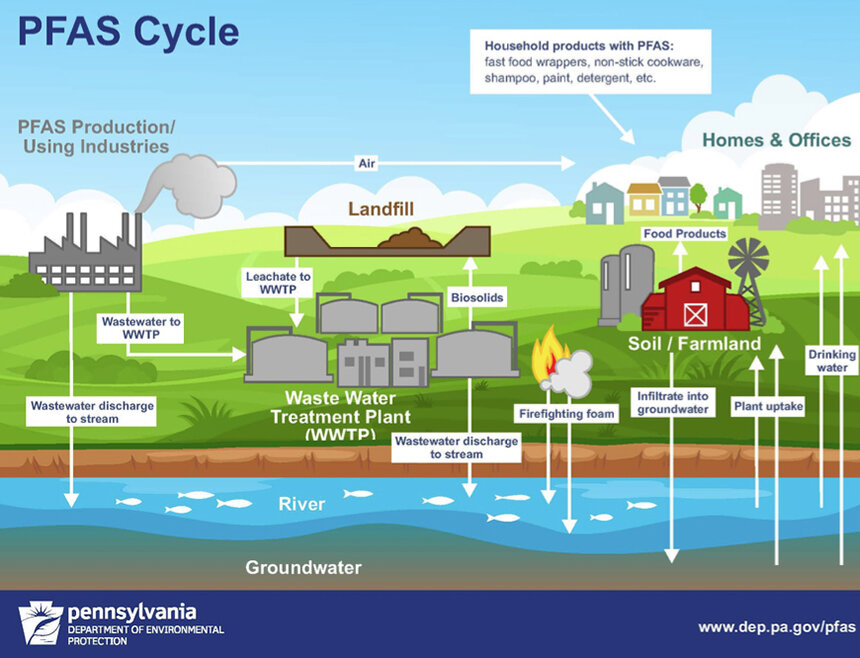Rhode Island Issues Exemption for Higher Polluting Gasoline
April 26, 2020
The drop in demand for fossil fuels is creating a glut of gasoline and coal, prompting relief by the Environmental Protection Agency (EPA) and state agencies, including in Rhode Island, that is likely to worsen air pollution.
The U.S. Energy Information Administration (EIA) reports that coal extraction is down 35 percent from a year ago. The reduced demand has led to layoffs and some mines shutting down temporarily because of the coronavirus pandemic.
Coal was struggling before the global health crisis, as other power sources, such as solar, wind, and natural gas, attained a greater share of energy production.
Last year, coal accounted for 23.5 percent of U.S. power generation. But during the week of April 8, coal fell to 15 percent of energy production, dropping below renewable-energy production for the first time, according to a report by the Rhodium Group.
Coal-energy analysts say coal plants may simply operate at a loss to burn off their excess stockpiles, or the plants may be retired, as several have in recent years.
The coal industry is getting help from and criticism for receiving federal stimulus funds. Disgraced former EPA director Scott Pruitt is now a lobbyist for the coal company Hallador Energy. The Indiana-based mining company received money from the federal Paycheck Protection Program (PPP) despite the fact that companies of its size were supposed to be precluded from the payouts. Speculation of corruption was also heightened by the fact that Hallador’s former top lobbyist now works for the U.S. Department of Energy.
The coal industry also cheered a recent move by the Trump administration to weaken President Obama’s Mercury and Air Toxics Standards. A 2016 provision forced coal plants to reduce mercury emissions based on the costs incurred by harmful public-health effects.
“No rule should be justified on co-benefits alone, and regulation should never be used as a weapon to manipulate the energy market,” according to a statement by the National Mining Association.
Petroleum demand has dropped as much as 50 percent, as motorists have been driving much less during the pandemic. Demand for jet fuel is down 40 percent and diesel use is down 8 percent, according to the EIA.
Continued drilling and declining sales have overflowed petroleum storage capacity, creating an excess of gasoline. Seeking relief, gas-station trade groups successfully lobbied the EPA in March to delay the mandated seasonal switch to a gasoline mix that reduces air pollution during warm weather.
Winter-blend gasoline contains a higher volume of volatile organic compounds (VOCs) that help vehicles start and run more smoothly when it’s cold. Summer gasoline contains fewer VOCs, which on warm days are a major contributor to ground-level ozone, or smog.
Summer gasoline is supposed to start flowing from pumps in May, but on April 7 the Rhode Island Department of Environmental Management issued a waiver order to comply with the EPA decision that allows sales of higher-polluting winter gasoline to continue.
“RIDEM is aware that distributors are experiencing an over-supply of winter gasoline relative to this time of year, making it difficult or impossible to shift supplies to a lower volatility fuel,” DEM director Janet Coit writes in the order.
The winter-fuel exemption is in effect until May 20 and is likely to be extended, according to DEM.
The American Lung Association criticized the EPA’s decision, saying it will increase the risk of respiratory infections.
In its 2020 State of the Air report for Rhode Island, the American Lung Association noted that long-term exposure to particle pollution and VOCs increases the death rate among COVID-19 patients.
“There is no short cut, no alternative to breathing,” Terrance Healey, director of thoracic radiology at Rhode Island Hospital, is quoted in the report. “We must do more to protect our lungs from anything that puts our ability to breathe at risk, be it a virus, tobacco smoke, or air pollution.”
Categories
Join the Discussion
View CommentsRelated Stories
Your support keeps our reporters on the environmental beat.
Reader support is at the core of our nonprofit news model. Together, we can keep the environment in the headlines.
We use cookies to improve your experience and deliver personalized content. View Cookie Settings



